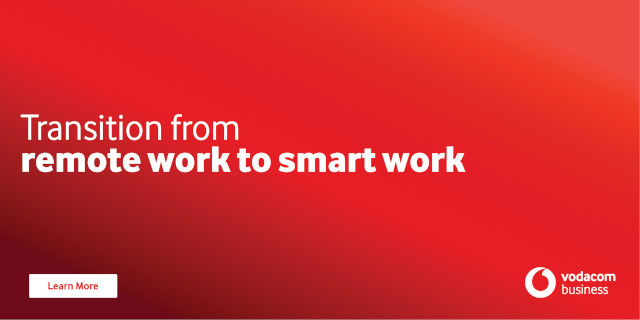Combating drinking and driving and police corruption in South Africa with cloud technology
By Industry Contributor 26 March 2024 | Categories: news
News sponsored by Vodacom Transformation of Work:
By Rhys Evans, Managing Director at ALCO-Safe
The fight against drinking and driving is an ongoing battle often exacerbated by the prevalence of police bribery. In many instances, citizens are willing to take the risk of driving under the influence, knowing that a bribe could buy their freedom. However, cloud-linked breathalyser technology holds the key to reducing both the dangers of drunk driving and the corrupt practices of many police officials.
Cloud-linked breathalysers: a technological breakthrough
Imagine a scenario where police officers at a roadblock are equipped with breathalysers connected to a cloud-based platform. Each test creates a digital footprint, making it virtually impossible to tamper with or to manipulate results. This cloud-linked technology not only provides transparency but also reduces the room for corrupt practices. The instruments connect to a Bluetooth app or a smartphone, which then transmits the results to a cloud-based platform. Such an approach allows for real-time monitoring and reporting without the need for manual downloads, which makes it possible to efficiently track and manage breathalyser test result data.
Furthermore, with oversight from non-corruptible managers - similar to CCTV cameras monitoring our streets - the cloud-based data system becomes a powerful tool in the fight against bribery and the arbitrary targeting of drivers. Police officials can then focus their testing efforts on areas that pose a high risk, identified by reports from data received from the cloud. This integration of cloud technology into law enforcement not only enhances public safety but also strengthens the integrity of the police service. By creating a digital trail of breathalyser results, law enforcement agencies can better monitor their officers' actions and ensure accountability. Such a system acts as a virtual "nanny," ensuring that officers are conducting tests as required and following up on positive results, within the bounds of the law.
Addressing the flaws in the system
However, implementing this technology alone will not be a quick fix for the complex issue of drinking and driving in South Africa. There is a significant gap in education regarding acceptable drinking and driving levels, both within the police force and the general public. Instances of intimidation by police officers, pressuring individuals to pay bribes before taking a breathalyser test, highlight the need for comprehensive awareness campaigns. Local governments need to invest in educating their citizens and law enforcement officers about acceptable alcohol limits to dispel misconceptions and promote responsible behaviour. A concerted effort is required to ensure that individuals are aware of their limits and that police officers are well-informed about the nuances of alcohol consumption, its metabolism by the liver and the impact thereof on breathalyser results.
Targeting policing efforts effectively
Cloud-based data reporting systems offer an additional layer of efficiency by enabling law enforcement to target testing initiatives more effectively. By utilising the data gathered from breathalyser tests, law enforcement can draw statistical insights from the cloud-based data, such as the prevalence of positive tests in specific areas or during certain time periods. This information empowers law enforcement to strategically allocate resources, focusing on high-risk areas and demographics. Importantly, this data allows for targeted campaigns during peak periods, such as holidays, to address specific challenges associated with drinking and driving. However, in many instances, while law enforcement may have a number of breathalyser instruments at their disposal, there are often no set targets in place for them to facilitate testing, resulting in random testing. In order for breathalyser testing to be truly effective in reducing incidences on the roads, there needs to be a minimum set number of tests performed per day, and per month. Creating these types of targets ultimately forces law enforcement to set up roadblocks and test people on a daily basis.
Ensuring privacy and security
While the implementation of cloud-linked breathalysers offers numerous benefits, there are often associated potential privacy concerns that must be addressed upfront. Fortunately, the technology operates without storing personal information, mitigating privacy issues, as the data primarily consists of time, date, test number, and results, maintaining anonymity for individuals tested. Although privacy is implicit, ensuring the security and integrity of cloud-linked breathalyser data is critical. Implementing password-protected dashboards and integrating body cameras or vehicle cameras into the testing process can safeguard against officer tampering and unauthorised access, which will effectively uphold the reliability and trustworthiness of the data collected.
International benchmark and future prospects
While South Africa is taking strides toward implementing modern breathalyser technology, there is still a notable gap compared to more mature markets. European countries and Australia have successfully integrated similar systems, showcasing the potential for widespread adoption. Despite the current gap, the technology is available, and with concerted efforts, South Africa can bridge this divide and join the ranks of nations making use of cloud technology for enhanced road safety. The integration of this technology will not only have a significant impact in addressing the immediate challenges of drinking and driving but will also tackle the deep-rooted issue of police corruption. Combined with a commitment to education and transparency, such technological advancements can see South Africa paving the way for safer roads and contributing to a more accountable law enforcement system.
By creating a more efficient system for handling drunk driving offences, cloud-linked breathalysers contribute to safer roads. The technology reduces the likelihood of bribery, which has a deterrent effect that encourages responsible behaviour, and streamlines law enforcement processes. With proper education and implementation, South Africa can leverage cloud technology to create a robust and accountable system that significantly reduces the prevalence of drinking and driving.
Most Read Articles

Have Your Say
What new tech or developments are you most anticipating this year?




